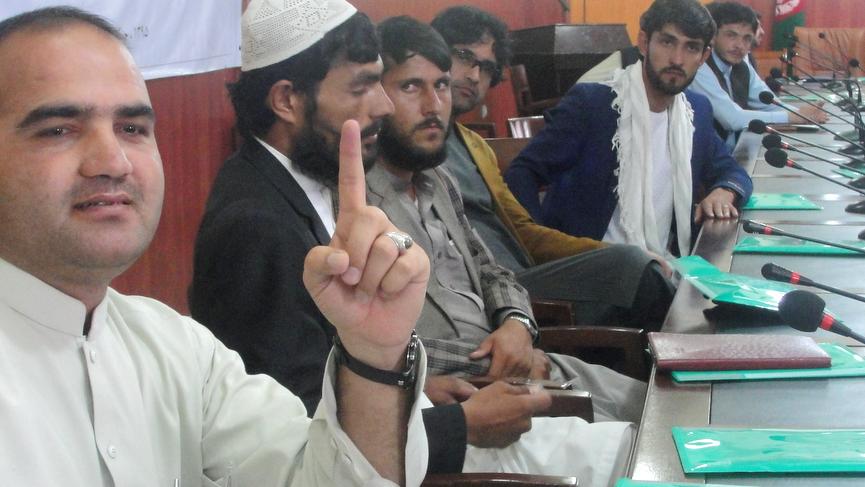GARDEZ - Open and transparent government is a key public right, Paktya’s provincial governor, Nasratullah Arsala, said at a UN-backed ‘good governance’ event in south-east Paktya province.
Mr. Arsala said his administration is committed to accountability and transparency.
“It is the constitutional right of people to be provided with information by government institutions in their respective areas of responsibilities and, helping to build trust between the people and government,” said Mr. Arsala. “No one is above the law.”
Around 55 participants -- including from civil society organizations, government, the provincial council and media -- attended the UNAMA-backed one-day event in Gardez, the capital of the mountainous and largely Pashtun province.
The gathering highlighted the central role of accountability and transparency in good governance as it relates to development in the province.
Maulavi Abdul Ghafoor, a religious scholar, said transparency and accountability cannot be fully achieved without reference to institutional standards.
Ahmad Shah Ahmadzai, a civil society representative, said that civil society groups play an important bridging role between the public and government. As such, they need to have a sufficient role in decision-making and monitoring.
Participants underlined key challenges facing good governance, including administrative corruption, lack of professionalism, too much bureaucracy, insecurity and lack of a cohesive approach. After identifying the challenges, participants proposed specific accountability and transparency mechanisms for greater civil society engagement in local governance.
UNAMA is mandated to support the Afghan Government and the people of Afghanistan as a political mission that provides good offices; promotes coherent development support by the international community; supports the process of peace and reconciliation; monitors and promotes human rights and the protection of civilians in armed conflict; promotes good governance; and encourages regional cooperation.






